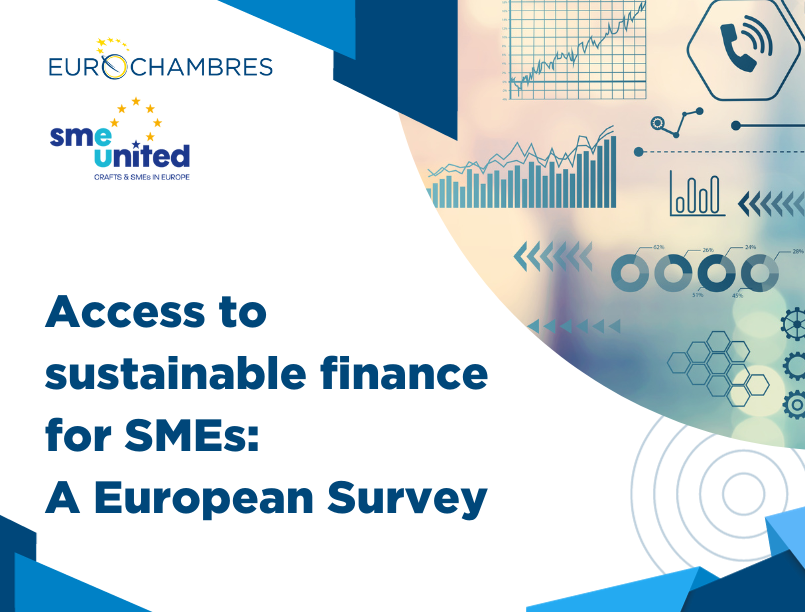Access to sustainable finance for SMEs: A European Survey
Nearly 60% of the surveyed small and medium-sized enterprises (SMEs) are investing in their sustainable transition. This clearly indicates that the topic resonates strongly with SMEs, and that they are acting accordingly. Nevertheless, securing sufficient funding remains a significant hurdle: only 35% of SMEs’ investments were funded by external sources, which is not enough to cover the massive financing required for the transformation.
A mere 16% of external financing can be classified as sustainable finance. The definition of “sustainability” varies widely. In 70% of cases, sustainability is determined by grants and subsidy programmes. These programmes are often viewed as burdensome, with lengthy application procedures. The survey also shows that EU taxonomy does not play a role in the definition of sustainability criteria for SMEs.
Considering the significant role of bank financing, as well as the limitations of existing subsidies and the low relevance of capital markets for SMEs, the capacity of banks to fulfil sustainable financing must be substantially increased through incentives and regulations. Beyond subsidy programmes, merely facilitating sustainable use-of-proceeds loans falls short. Specifically, SMEs require general purpose financing, such as ESG-linked loans.
Evidence suggests that larger corporations and banks indirectly impose reporting obligations on SMEs through a trickle-down effect, as they pass down their direct reporting requirements. The larger the SME, the more pronounced the effect is. However, micro-enterprises and service companies are also impacted to a lesser extent.
SMEs are actively addressing sustainability. 12% of them say they voluntarily produce sustainability reports and secure external ESG ratings. A striking 30% have established environmental management systems. Nonetheless, larger SMEs, which will soon be obliged to generate sustainability reports, are not adequately prepared for the introduction of the Corporate Sustainability Reporting Directive.
The survey underscores the eagerness of SMEs to transform. However, the current sustainable finance regulations fall short of meeting SMEs' needs. A simple and customized approach is essential.
Additional information:
- The survey was run by Eurochambres in cooperation with SMEunited between 15 June to 7 August 2023.
